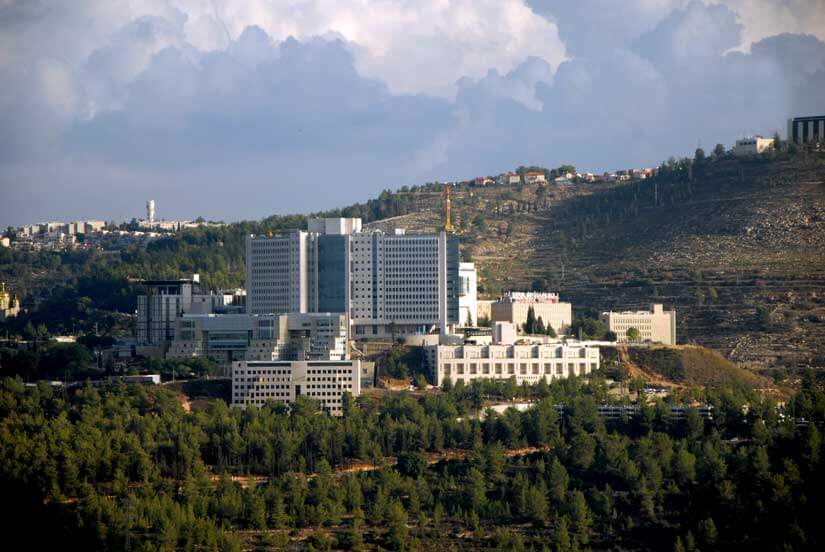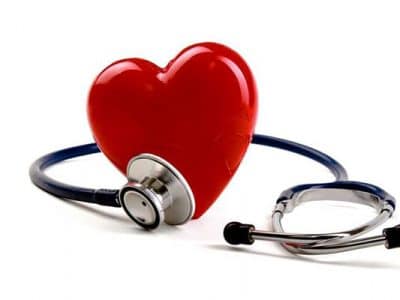Genetics and orphan diseases
THE LATEST DIAGNOSTIC METHODS
UNIQUE SPECIALISTS
SUCCESS IN TREATMENT WITH BMT – UP TO 97%
Hadassah is:
- Cutting-edge genetic tests
- Innovative methods of enzyme replacement therapy
- Advanced techniques for stem cell transplant and bone marrow transplant (BMT)
- Constant implementation of innovative drugs developed by scientists of the Hadassah MC.
To access the topic, you are interested in, please click on one of the links below:
- Worldwide famous experts
- Treatment of orphan diseases at the Hadassah clinic
- Success of Bone Marrow Transplantation Department
- A short list of orphan diseases
- Charitable organizations
- Hadassah – Center of the Rare Diseases Study
- Accurate and prompt diagnostics
WORLDWIDE FAMOUS EXPERTS
Professor Polina Stepensky

In 2018-2020 professor Stepensky has been in the list “Best Israeli physicians” annually published by the FORBES Magazine.
Bone marrow transplants performed by professor Stepensky have saved dozens of children with osteopetrosis, primary immunodeficiency (PID), and many other rare genetic (orphan) diseases.
Read the interview with prof. Polina Stepensky “Patients who have been refused by everyone”.
Dr. Irina Zaidman

Dr. Zaidman has performed over 400 successful BMT procedures.
In 2018-2020 doctor Zaidman has been in the list “Best Israeli physicians” annually published by the FORBES Magazine.
When issuing the international accreditation of the European Transplant and Cell Therapy Committee (JACIE) to the BMT department, committee experts have specifically praised the working qualities of doctor Zaidman.
Professor Orly Elpeleg

Professor Elpeleg has become the first Israeli genetic scientist to start exome research.
Genetic scientists of the clinic guided by professor Elpeleg has detected over 100 new gene mutations causing dangerous diseases.
Professor Shimon Edwardson

He specializes in the diagnostics and treatment of genetic diseases affecting the nervous system.
He is a famous scientist awarded with a lot of prestigious grants and prizes for his research work.
TREATMENT OF ORPHAN DISEASES AT THE HADASSAH CLINIC

Head of the BMT and Immunotherapy Department (for Children and Adults), Professor Polina Stepensky and Vanya Volokhatyuk, who was cured of IPEX syndrome
The Hadassah Clinic is an initiator and a participant of many international clinical trials which are aimed at finding an efficient treatment for lethal diseases which are currently not managed by medicine.
SUCCESS OF BONE MARROW TRANSPLANTATION DEPARTMENT
Over 4,200 bone marrow transplants (over 1,380 in children) had been performed by December 2019 in the Hadassah Clinic.
In August 2018, the BMT department of the Hadassah Clinic became the first Israeli bone marrow transplant center that received full accreditation from the International Joint Accreditation Committee ISCT-EUROPE & EBMT (JACIE).
Read more about the success of the BMT department
A short list of orphan diseases that are promptly diagnosed and treated at Hadassah:
- osteopetrosis
- aplastic anemia
- primary immunodeficiency
- metachromatic leukodystrophy
- congenital dyskeratosis
- cystic fibrosis
- familial Mediterranean fever
- mucopolysaccharidoses I and II type (MPS I/II)
- Gaucher disease
- thalassemia
- retinoblastoma
- Nijmagen breakage syndrome
- adrenogenital syndrome
- Fabry disease
- alpha mannosidosis
- Arnold-Chiari malformation 1 type
- Crohn’s disease
- congenital ichthyosis
- neurofibromatosis 1 type
- moyamoya disease
- nephrotic syndrome
- Schwachman-Diamond syndrome
- pulmonary arterial hypertension (PAH)
- tuberous sclerosis
- spinal muscular atrophy
- Cushing disease
- atypical hemolytic-uremic syndrome
- hemangioma
- Burkitt lymphoma
- juvenile monocytic leukemia
- thymoma
- lymphosarcoma
- pediatric genetic agranulocytosis
- adrenoleukodystrophy (X-ALD)
- Hirschsprung’s disease
- Krabbe disease
- mucolipidosis
- thrombocytopenic purpura
- Niemann-Pick disease
- Von Hippel-Landau syndrome
- Wilson`s disease
- Duchenne muscular dystrophy
- Menkes disease
CHARITABLE ORGANIZATIONS
The international department of the clinic constantly cooperates with charitable organizations, providing help for patients with obtaining financial assistance:
- refers them to foundations;
- provides the necessary documents, medical programs and recommendation letters from specialists;
- provides support in fundraising arrangement.
Over the past few years, our patients have received assistance from the following Charitable Foundations:
- RUSFOND;
- WORLD VITA;
- CF Alyosha;
- CF Artemka;
- CF Pomogat legko;
- CF Dobryaki Club;
- German foundation BILD Ein Herz fur Kinder.
and other charitable organizations.
HADASSAH – CENTER OF THE RARE DISEASES STUDY
The Hadassah University Hospital is a renowned leader in the sphere of orphan disease research. Scientists known all over the world work here, including professor Orly Elpeleg — the leading geneticist, pediatrician, head of the Genetic and Metabolic Disease Department.
The Hadassah Clinic often hosts leading foreign scientists, while professor Elpeleg is the head of one such international research groups. The laboratories and research institutes of the Hadassah clinic are constantly working on the detection of yet unknown rare diseases, as well as the development and implementation of new diagnostic and treatment methods.
ACCURATE AND PROMPT DIAGNOSTICS – THE WAY TO SAVING LIFE

Head of the Pediatric Bone Marrow Transplant Department, Dr. Irina Zaidman with a little patient
Innovative diagnostic methods of orphan diseases are used in the Hadassah Clinic:
- advanced computer visualization means;
- advanced equipment;
- cutting-edge tests.
In many cases orphan diseases may be identified only based on genetic tests. The leading genetic scientists of the world work at the Hadassah Clinic. They have at their disposal cutting-edge tests providing not only maximal accuracy, but also diagnostic efficiency.
Unique equipment

Секвенатор NovaSeq 6000 компании Illumina
Unlike other Israeli medical centers, where this device is used almost exclusively with the purposes of research, it is extensively used in the Hadassah Clinic to diagnose genetic diseases.
This difference in approaches is related to the size of the genetic database: if the base is small, NovaSeq 6000 work concerning quick comparative analysis loses any sense. The Hadassah Clinic owns the most complete genetic database in Israel called HADASSOME, so the sequencer here is used exclusively for clinical purposes. Genetic scientists from other medical centers of the country constantly ask Jerusalem colleagues for advice.
NovaSeq 6000 significantly reduced the cost of exome sequencing in Israel
The device scans the DNA that is extracted from the patient’s blood obtained during a routine blood test. The genetic material is placed in a special flow cuvette divided into multiple cells. A modern robotic system prepares the material for scanning.
NNovaSeq 6000 has increased accuracy – each such cell is scanned 32 million times.
One more advantage of the cutting-edge device is its throughput — it can scan up to 30 genetic samples simultaneously.
Exome sequencing is carried out using the most modern and high-speed PipeLine software system.
All these perfect technologies have made the sequencing process much more accurate and have allowed to shorten it as well — the patient receives the results in less than 2 weeks.












